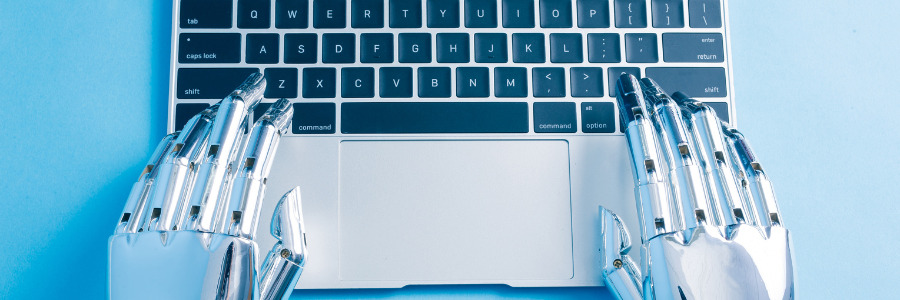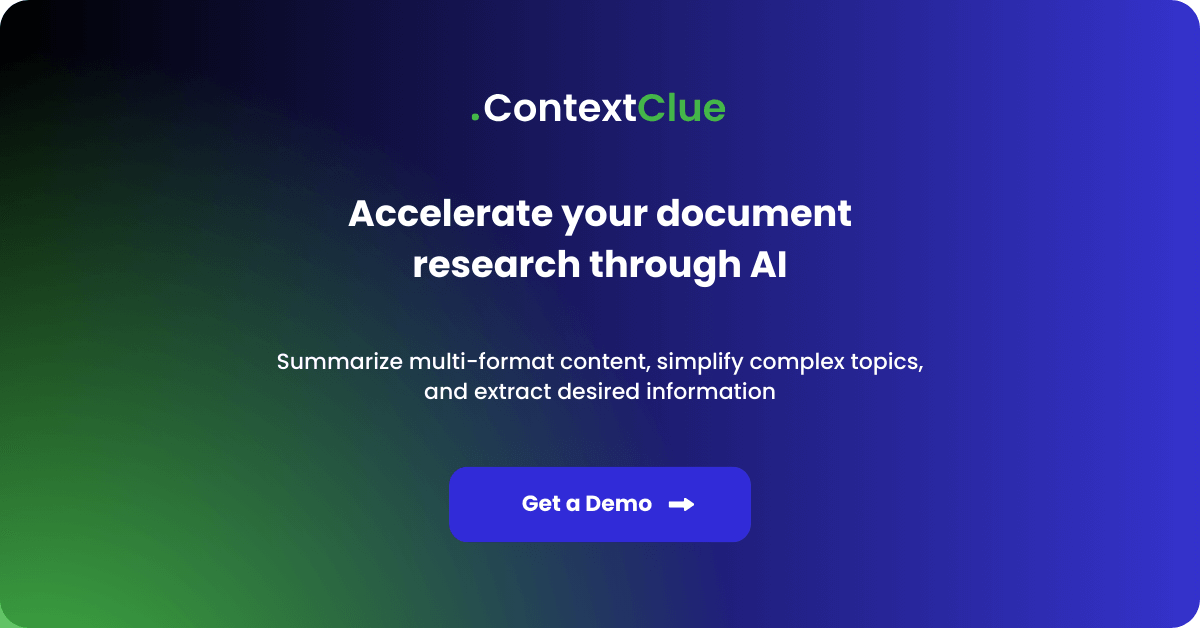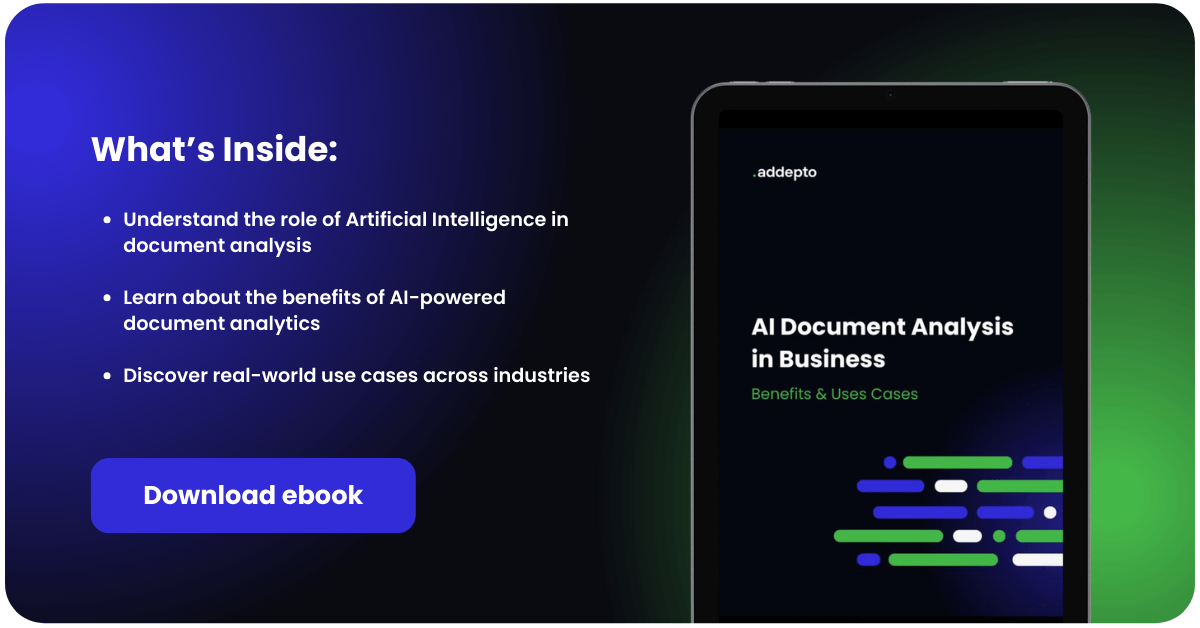
April 08, 2024
ChatGPT for Business – How are Companies Using It?
Author:

CSO & Co-Founder
Reading time:
15 minutes
81% of business executives consider AI a mainstream technology in their businesses. A Gartner report also estimates that customer satisfaction may grow by 25% in 2023 in organizations that use AI [1]. The relationship between businesses and AI technologies is poised to increase, especially with the release of new technologies and revolutionary chatbots like ChatGPT that can generate human-like text in a conversational context.
This unique ability makes ChatGPT potentially useful in a wide variety of business applications, especially when automating interactions with customers. Read on as we explore the various ways you can use ChatGPT for business and the benefits it presents.
Addepto introduces a game-changing AI Text Analysis Tool to supercharge your document analysis efforts.
What is ChatGPT?
ChatGPT is a large language model developed by OpenAI. The model is based on GPT-3 and uses Natural Language Processing (NLP)[2]. It is trained to understand and respond to user input conversationally.
As a pre-trained language model, ChatGPT relies on a huge database of training data to understand the structure and pattern of natural language. The result is better and more coherent responses that enable it to generate a wide variety of texts, including articles, screenplays, stories, and more. It can also be used to generate code and other technical documentation [3].
Due to these natural language processing capabilities, companies are now considering using ChatGPT in businesses (especially for business applications such as content marketing, customer service, and personalization, among others).
![]()
If you are interested to know more about this AI-driven technology,
we encourage you to download a new eBook prepared by our AI experts!
![]()
ChatGPT for business: benefits
Businesses are continuously looking for effective and cost-effective ways to improve their product offering, service delivery, and scalability. To this effect, 91% of leading businesses invest in AI on an ongoing basis due to its ability to automate tasks and provide valuable insights [4].
Unlike other chatbots on the market, ChatGPT offers added benefits that cut across all areas of business – not just customer service. Here are some of the most notable benefits of using ChatGPT in the business:
ChatGPT for businesses: improved productivity
The average employee is only productive for 60% of their work day. Productivity levels are even worse for office workers, who are barely productive for two and a half hours a day[5]. This means that any business that wants to stay competitive must figure out better ways to keep its employees engaged and productive.

One of the best ways to improve productivity in any business is through automation. Using ChatGPT in business can automate a wide variety of tasks, freeing up your employee’s time to focus on more intricate, strategic work.
For instance, ChatGPT can generate reports, handle customer complaints, and even create content marketing materials such as email campaigns and social media posts.
ChatGPT can also help keep employees engaged by automating routine tasks such as content creation, report generation, translation, and data analysis. The result is more engaged employees who stay focused for longer and get more work done.
ChatGPT for businesses: marketing and lead generation
In today’s fast-paced digital landscape, businesses are constantly seeking innovative ways to stay competitive and engage with their customers effectively. ChatGPT for marketing, powered by artificial intelligence and natural language processing, has emerged as a game-changer for marketing and lead generation strategies. Let’s delve into how ChatGPT for marketing can transform these crucial aspects of your business operations.
Some of the biggest challenges content marketers face are getting ideas for new content, creating content that generates leads, and creating engaging content that resonates with their target audience [6].
ChatGPT for marketing can help content marketers alleviate some of these issues. For starters, content marketers can use the language model to generate marketing content such as product descriptions, and email newsletters. As a machine learning model, ChatGPT can learn the style and tone of a business’s marketing materials and generate new content that is consistent with the business’s brand and voice.

Another effective way of using ChatGPT for marketing is using it to provide personalized content and recommendations. The language model can effectively analyze user data and behavior to generate personalized content that is not only relevant but also engaging.
You can also use ChatGPT in business by incorporating it into your chatbots to engage visitors and help them find the information they need.
One of the primary benefits of using ChatGPT for marketing strategy is its round-the-clock availability. It never sleeps, ensuring that potential customers can get information, assistance, and engage with your business at any time.
While they’re at it, they can use ChatGPT’s capabilities to include a preset questionnaire to persuade site visitors to lead generation, which ultimately leads to higher conversion rates.
Furthermore, ChatGPT for marketing can be seamlessly integrated into various communication channels, including websites, social media, and messaging apps. This ensures a consistent and cohesive brand presence across different platforms, making it easier for customers to engage with your business.
ChatGPT for businesses: improved customer service
The natural language processing capabilities of ChatGPT allow it to understand and respond to customer requests naturally and conversationally – almost as well as a human would. The effect is improved customer experience and loyalty.
ChatGPT can also handle a large volume of customer requests simultaneously, thus allowing businesses to scale their customer service operations without necessarily having to add additional staff. This can greatly reduce response time and improve overall efficiency.
You can also use ChatGPT in business to gather and process customer data so they can get insights into customer needs and preferences. The collected data can also be used to improve a company’s products, services, and overall customer experience.
ChatGPT for businesses: scalability
Scalability is a crucial aspect of any business, especially for those that are experiencing rapid growth. As a business expands, it needs to be able to accommodate an increasing volume of customer queries and transactions without compromising the quality of its customer service. This is where ChatGPT can play a significant role in helping businesses to scale.
ChatGPT is highly scalable, meaning that it can handle a large volume of queries simultaneously. This makes it an ideal solution for businesses that are growing rapidly and need to scale their customer service capabilities. As more customers interact with the ChatGPT system, the system can adapt and handle the additional workload without the need for additional human staff.
How to use ChatGPT for businesses and not only
For personal use
Using ChatGPT for business is pretty straightforward, thanks to its minimalistic interface. ChatGPT works much like a regular messaging app, where you type in text and press enter. The only difference is that instead of sending a message, ChatGPT answers the question.
The language model is optimized for dialogue, which means that you don’t have to key in long blocks of text each time you have a follow-up question. You can simply ‘speak’ casually to it, and it will follow along with the conversation.
All follow-up questions are typically added to the conversation thread, which the system can look back on. That said, you’ll need to refresh the chat with the ‘new chat’ button at the top left of the page to erase the details of your previous conversation when starting a new one.
Below, is a comprehensive list on how to effectively use ChatGPT in various contexts, including professional applications and personal use:
- Assist with personal content creation, like writing essays, creating poetry, or even drafting creative fiction.
- For personal research or academic purposes, ChatGPT can assist in summarizing articles, reports, or even answering specific research questions.
- ChatGPT can help you craft well-structured emails, improve communication, and even draft polite responses to personal messages.
- Quick translations while traveling, learning a new language, or communicating with friends and family who speak different languages.
- Analyze personal data, such as finances, fitness, or personal project metrics, to gain better insights into your own life.
- For leisure, ChatGPT can generate jokes, riddles, or even engage in casual conversation to keep you entertained.
ChatGPT for web developers
Although it’s not an absolute requirement, marketers need to learn to code. Coding skills make marketers better and more effective at their jobs. ChatGPT can be very helpful when creating small pieces of code or debugging a set of code to remove errors.

Unlike with personal use, developers need to sign up for an OpenAI API key that gives them access to the model, so they can use it in their applications.
As a developer, you can install and set up ChatGPT in your system through the following steps:
- Visit the OpenAI website and create a free account
- Browse through the selection of API keys on the API page to generate a new key
- Copy and store the API key, so you can access the model whenever you need to
- If, by any chance, you’re coding using Python programming language, you have to install the OpenAI Python Package to gain access to the model from the Python code.
ChatGPT for content marketing
Many content marketers are already using ChatGPT for content marketing. The model’s ability to generate compelling content marketing copy in the form of articles, email campaigns, and even newsletters is making it a game-changer in the content marketing industry.
With that said, despite being one of the largest and most effective language models in the world, ChatGPT has a few limitations, particularly around being excessively wordy, overusing certain phrases, and providing the same response to multiple users for the same query, thus lacking personalization.

Therefore, to effectively use ChatGPT for content marketing, content marketers need to employ their skills to provide domain knowledge, ask good questions, and review created text.
Here’s how content marketers can set up ChatGPT for businesses:
- Visit the OpenAI website and sign up for an account
- Configure your preferred ChatGPT settings, including its tone, language, and response time
- Integrate the model into your social media channels or website chat functions
- Input specific prompts or queries and let the model generate a response
- Review and edit the response as needed to ensure relevance and accuracy
- Repeat the process as needed to assist with content creation, customer queries, and information-gathering tasks
Final thoughts on ChatGPT for businesses
ChatGPT is a game-changer in the world of business. The revolutionary technology can improve nearly all aspects of business, including streamlining customer service, lead generation, and even generating marketing content.
Additionally, due to its ability to adapt and learn from its interactions, ChatGPT in businesses is a valuable asset for any organization looking to enhance user experience, boost productivity, and ultimately stay competitive – all the while without breaking the bank with overwhelming overhead costs.
If you’re interested in incorporating ChatGPT for business or other generative AI models into your business or organization, make sure to check out our generative AI development services. Don’t hesitate to reach out and explore the possibilities of what generative AI can do for you.
By utilizing the power of ChatGPT and other generative AI technologies, you can take your organization to the next level and stay ahead of the curve in this fast-paced and ever-evolving technological landscape. So why not start exploring the possibilities today?
Will ChatGPT replace jobs?
In recent years, there has been a significant increase in the development of artificial intelligence (AI) technologies, and many people are starting to wonder if these technologies will eventually replace human workers.
ChatGPT is a powerful tool that can understand and generate human-like responses to text inputs. It has been trained on vast amounts of data and has the ability to learn and adapt to new information quickly. As a result, it has the potential to revolutionize the way we interact with technology and each other.
However, the question remains: will ChatGPT replace jobs? The short answer is no. While ChatGPT for business is a powerful tool, it is still just that – a tool. It is designed to assist humans, not replace them.
ChatGPT is not capable of performing all the tasks that humans can do. It lacks empathy, creativity, and critical thinking skills, which are essential for many jobs. ChatGPT is best suited for tasks that involve repetitive, data-driven processes, such as customer service inquiries or data analysis.
In conclusion, while ChatGPT is a powerful tool that has the potential to transform many industries, it is unlikely to replace human jobs. Instead, it will create new opportunities and improve efficiency in many industries.
Here are some key points to consider regarding the impact of ChatGPT on employment:
- Task Automation
ChatGPT and AI systems, in general, can automate routine, repetitive, and data-driven tasks. This can lead to increased efficiency and reduced labor costs in industries where these tasks are prevalent. - Job Transformation
AI is more likely to transform jobs rather than replace them entirely. Workers may find themselves working alongside AI tools to perform tasks more efficiently. This shift can require upskilling and adapting to new tools and technologies. - Improved Decision-Making
AI can provide valuable insights and assist with decision-making by processing vast amounts of data quickly and accurately. This can lead to better-informed decisions across various industries, ultimately improving business performance and potentially creating opportunities for job growth. - Human-AI Collaboration
Human-AI collaboration is increasingly common in fields like healthcare, finance, and manufacturing. AI can assist human professionals by handling data analysis, but the human touch remains crucial for complex decision-making, empathy, creativity, and ethics.
In summary, while ChatGPT and AI technologies have the potential to automate tasks and change the nature of certain jobs, they are unlikely to replace jobs entirely.
The impact of AI on employment will depend on various factors, including the industry, the adaptability of the workforce, the ethical use of AI, and the development of new roles related to AI technology. Rather than being a sole job disruptor, AI is more likely to act as a tool that complements and augments human capabilities, ultimately leading to greater productivity and efficiency in the workforce.
ChatGPT for Business – How are Companies Using It? FAQ
What is ChatGPT and how does it work?
ChatGPT is a large language model developed by OpenAI based on GPT-3, utilizing Natural Language Processing (NLP). It is trained to understand and respond to user input conversationally, drawing from a vast database of training data to generate coherent responses. ChatGPT can be used to generate various types of text, including articles, screenplays, stories, and even technical documentation.
How can businesses benefit from using ChatGPT?
ChatGPT offers numerous benefits for businesses across various areas, including improved productivity, marketing and lead generation, enhanced customer service, and scalability. By automating tasks, generating marketing content, handling customer inquiries, and scaling customer service operations, ChatGPT can streamline business processes, boost efficiency, and improve customer satisfaction.
Will ChatGPT replace human jobs?
While ChatGPT and similar AI technologies have the potential to automate certain tasks, they are unlikely to replace human jobs entirely. Instead, they are more likely to transform job roles, create new opportunities, and improve efficiency. Human-AI collaboration is increasingly common, with AI assisting human professionals in tasks such as data analysis and decision-making.
How can businesses effectively implement ChatGPT?
Implementing ChatGPT for business use involves configuring the model’s settings, integrating it into communication channels such as websites and social media, inputting specific prompts or queries, and reviewing and editing generated responses as needed. Content marketers, web developers, and other professionals can leverage ChatGPT’s capabilities to streamline processes and enhance their business operations.
Are there tools available to distinguish between AI-generated content and human creativity?
Yes, there are various approaches and tools that can help differentiate between AI-generated content and human creativity, although none are foolproof. Methods include analyzing complexity and originality, assessing emotional depth and personal expression, examining contextual understanding, and utilizing forensic techniques. However, these tools may require constant refinement to keep pace with evolving AI capabilities.
How can ChatGPT be integrated with existing business systems?
Integrating ChatGPT with existing business systems involves several steps, including configuring the model’s settings, selecting appropriate communication channels, and implementing APIs or plugins to enable seamless interaction. Businesses may also need to train employees on using ChatGPT effectively within their workflow and ensure compatibility with existing software and platforms.
Are there any legal limitations associated with using ChatGPT for business?
While ChatGPT offers numerous benefits for businesses, there are legal considerations to be aware of, including data privacy and intellectual property rights. Businesses must ensure compliance with relevant regulations such as GDPR and CCPA when handling customer data. Additionally, using ChatGPT to generate content may raise copyright issues if not properly attributed or if it infringes on existing copyrights.
What are some alternatives to ChatGPT for business?
While ChatGPT is a powerful tool for businesses, there are several alternatives available, each with its own strengths and limitations. Some popular alternatives include IBM Watson, Amazon Lex, and Microsoft Azure Bot Service. These platforms offer similar natural language processing capabilities and can be tailored to suit specific business needs. Businesses should evaluate each option based on factors such as cost, scalability, and integration capabilities before making a decision.
Editor’s note: This article was originally published on January 16th, 2023. It has since been revised and updated on October 12th, 2023 to reflect the latest information available
References
[1] Gartner.com. Top 10 trends in Digital Commerce. https://www.gartner.com/smarterwithgartner/top-10-trends-in-digital-commerce, Accessed January 11, 2023
[2] IBm.com. Natural Language Processing. URL: https://ibm.co/3IR1SrX. Accessed January 11, 2023
[3] Towardsdatascience.com. Pre-trained Language models Simplified. URL: https://towardsdatascience.com/pre-trained-language-models-simplified-b8ec80c62217. Accessed January 11, 2023
[4] Businesswire.com. 2020 Data and AI Executive Survey. URL: https://bwnews.pr/3QHpKA6. Accessed January 11, 2023
[5] Voucercloud.com. Office Worker Productivity. URL: https://www.vouchercloud.com/resources/office-worker-productivity. Accessed January 11, 2023
[6] Hubspot.com. Hubspot blog Marketing Industry Trends. URL: https://bit.ly/3ZI837B. Accessed January 11, 2023
Category:







